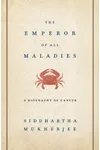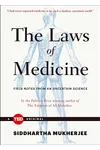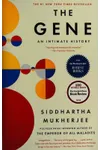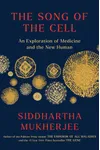Picture an Indian-born physician who turned the complex world of cancer and genetics into gripping, poetic narratives—meet Siddhartha Mukherjee! Born in New Delhi in 1970, this Pulitzer Prize-winning author and oncologist has captivated readers with books like The Emperor of All Maladies and The Gene, blending science with storytelling to illuminate the mysteries of human biology.
Mukherjee’s work isn’t just about facts; it’s about the human struggle, hope, and ethical dilemmas behind medical breakthroughs. His ability to make science accessible and enthralling has made him a global voice in health and literature. Ready to dive into his world?
The Making of Siddhartha Mukherjee
Born in New Delhi, Siddhartha Mukherjee grew up in a family that valued education and curiosity. He studied biology at Stanford University, earned a Rhodes Scholarship to Oxford for his Ph.D. in immunology, and later completed his M.D. at Harvard Medical School. His early exposure to medicine and research sparked a passion for understanding cancer, not just as a disease but as a historical and human phenomenon. As an oncologist, he witnessed the raw realities of patient care, which would later shape his writing’s emotional depth.
Siddhartha Mukherjee’s Unforgettable Stories
Mukherjee’s debut, The Emperor of All Maladies: A Biography of Cancer (2010), is a tour de force that traces cancer’s history from ancient times to modern medicine. Written with the elegance of a novel, it won the Pulitzer Prize for Nonfiction and was adapted into a PBS documentary. The book humanizes cancer, weaving patient stories with scientific milestones, making it both heartbreaking and hopeful.
In The Gene: An Intimate History (2016), Mukherjee tackles the history of genetics, exploring its scientific triumphs and ethical shadows. From Mendel’s peas to CRISPR, he crafts a narrative that’s as personal as it is universal, reflecting on his own family’s history of mental illness. His latest work, The Song of the Cell (2022), dives into cellular biology, revealing how cells shape life and medicine. Mukherjee’s style—lucid, poetic, and deeply empathetic—turns dense science into page-turning stories that resonate with readers worldwide.
His writing stands out for its ability to balance rigor with accessibility. Whether describing a chemotherapy breakthrough or the moral quandaries of gene editing, Mukherjee invites readers into the science, making them feel like participants in a grand human journey.
Why Siddhartha Mukherjee Matters
Siddhartha Mukherjee has redefined science communication, making complex topics like cancer and genetics relatable to millions. His books have inspired patients, scientists, and policymakers to grapple with medicine’s past and future. By blending storytelling with ethical reflection, he challenges us to think about health, identity, and humanity in new ways. As a professor at Columbia University and a practicing oncologist, he continues to shape medical education and public discourse.
His global impact lies in his optimism: even in the face of diseases like cancer, Mukherjee sees a story of resilience and progress. His work reminds us that science, at its best, is a deeply human endeavor.
About Siddhartha Mukherjee
- Born: July 21, 1970, in New Delhi, India
- Key Works: The Emperor of All Maladies, The Gene, The Song of the Cell
- Awards: Pulitzer Prize for Nonfiction (2011), Padma Shri (2014)
- Profession: Oncologist, researcher, professor at Columbia University
Snag The Emperor of All Maladies or The Gene and dive into Siddhartha Mukherjee’s captivating blend of science and storytelling!






